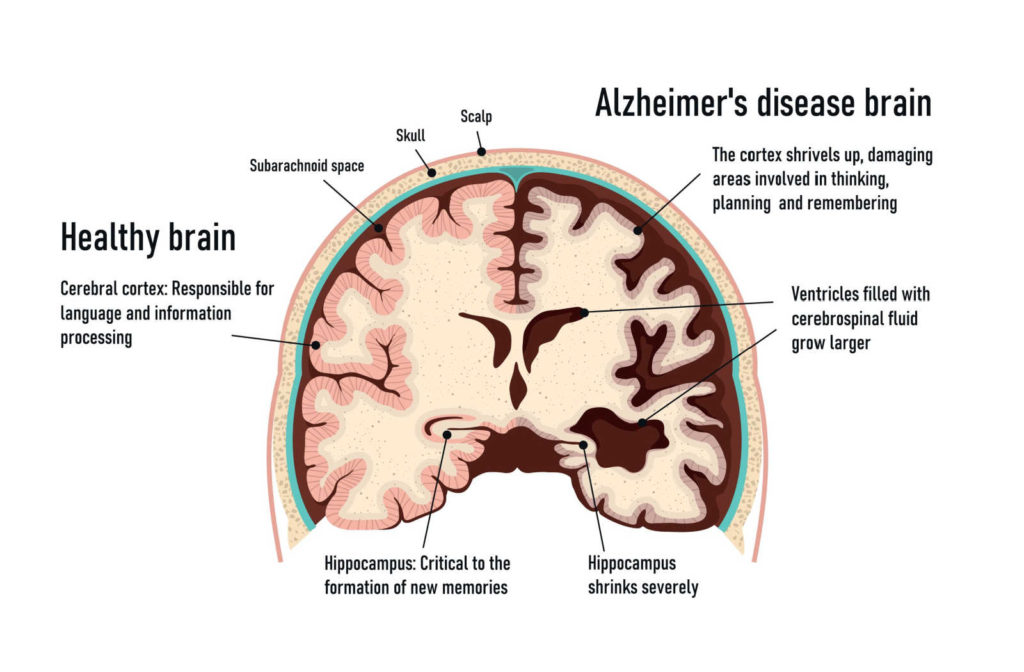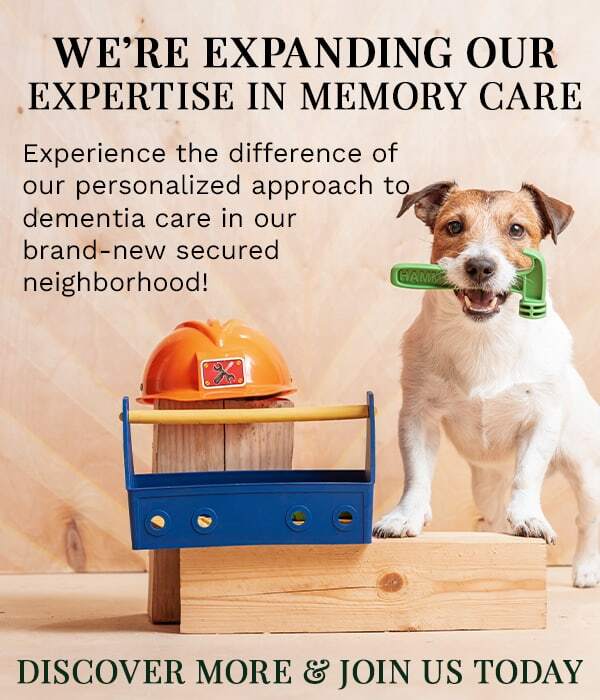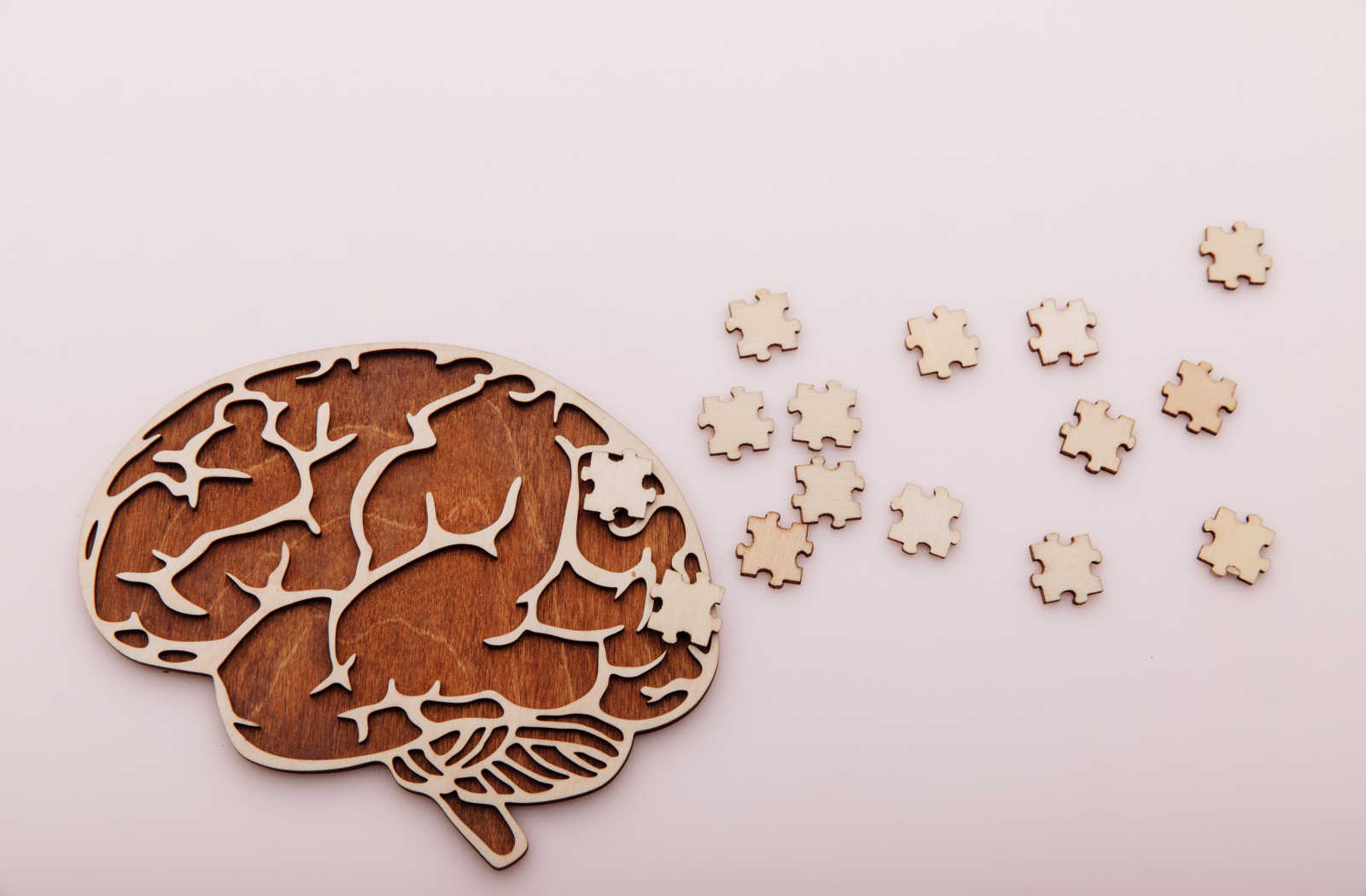Watching your loved one go through the progressive stages of Alzheimer’s is disheartening, and it can seem like the symptoms come on fast. As seniors age, it’s easy to write off memory changes as a typical sign of getting older.
The earliest signs of Alzheimer’s can be caught early if you recognize the symptoms. The earlier the intervention with a doctor, the more time you have to plan their care and learn about the disease.
Early Signs & Symptoms of Alzheimer’s Disease
Family members may not recognize the signs and symptoms of Alzheimer’s because they’re not looking for them. Your loved one may also try to conceal symptoms out of denial or fear of change. But between family members and care workers, detecting early signs is possible. Symptoms include:
- Progressive memory loss, starting with short-term memory, makes the person seem forgetful, while they will hold long-term memories in detail for longer
- A decline in cognitive functions such as problem-solving, timekeeping, decision-making, and judgment skills
- Behavior and mood changes, including apathy, depression, resisting care, wandering off or hiding things
- Episodes of psychosis whereby the person experiences delusions or hallucinations, which can occur in 40% of Alzheimer’s patients
If you observe signs that your loved one is behaving unlike themselves with worrying symptoms, consider seeking medical care to confirm a diagnosis of Alzheimer’s.
Diagnosing Alzheimer’s Disease
Only two decades ago, there was no method to diagnose Alzheimer’s in the early stages. Doctors now have several ways of detecting the disease non-invasively.
If a general practitioner suspects Alzheimer’s or doesn’t have experience with treatment, they may refer your loved one to a specialist:
- Geriatricians who manage health of older adults and can identify symptoms of common problems
- Geriatric psychiatrists who specialize in emotional or mental troubles in older adults and can assess memory challenges or cognitive function problems
- Neurologists who manage the health of the central nervous and brain and can analyze brain scans for abnormalities
- Neuropsychologists who can conduct thinking and memory tests
Doctors and specialists may conduct a series of tests to confirm a diagnosis and rule out any other potential causes of your loved one’s symptoms.
Physical Exam
During a thorough medical check-up, a general practitioner will:
- Ask questions about diet and medications (including non-prescription drugs)
- Listen to the lungs and heart
- Check pulse, blood pressure, and temperature
- Do a blood workup at a laboratory
Traditional laboratory tests and physical exams can help detect symptoms of dementia. They can also indicate whether common symptoms of dementia can be explained by other causes, such as sleep apnea, medication side effects, thyroid problems, or vitamin deficiencies.
If there’s evidence that another condition is causing symptoms like those displayed in Alzheimer’s patients, treating the actual condition can reduce or reverse the symptoms altogether.

Neurological Exam
A neurological exam can help identify Alzheimer’s through differential diagnosis. Initially, the neurologist will evaluate the patient for signs of other brain disorders.
Strokes, brain tumors, cerebrospinal fluid buildup in the brain, Parkinson’s, and other neurological conditions can explain memory problems and cognitive impairments. A neurologist will test:
- Coordination, balance, strength, and muscle tone
- Reflexes
- Speech
- Sensation
- Eye movement
Neurologists also have the authority to send their patients for brain scans and imaging tests to help support or reject their diagnosis.
Cognitive, Behavioural, and Functional Tests
Neuropsychologists can test memory, thinking, and problem-solving using cognitive, behavioral, and functional tests. The comprehensive evaluations can help assess executive function, judgment, language, and attention span and determine changes in the patient’s performance on these tests.
The results can help a neuropsychologist conclude whether the patient needs more advanced testing for Alzheimer’s disease.
Brain Imaging
Advancements in brain imaging technology benefit Alzheimer’s patients in delivering early and accurate diagnoses. With several different scans available, examining the structures of the brain, spinal cord, and blood flow allows doctors to confirm a diagnosis.
Some of the most common brain imaging include:
- Magnetic resonance imaging (MRI), which uses a strong magnet and radio waves to produce three-dimensional images to observe potential strokes, traumatic brain injuries, tumors, vascular abnormalities, and some neurodegenerative disorders, including Alzheimer’s
- Computerized tomography (CT), which uses x-rays to obtain cross-sectional images that can give a detailed picture of the brain to rule out other neurological conditions, such as strokes, hydrocephalus, brain damage resulting in epilepsy, and encephalitis
- Positron emission tomography (PET), which provides two- and three-dimensional images of the brain by measuring low-level radioactive isotopes injected into the bloodstream, is typically performed after an MRI or CT scan to obtain a clearer picture of the brain
Memory Care Is Available for Alzheimer’s Patients
Those with dementia need professional care as the disease progresses. With memory care, our staff provides help when they need it while respecting their independence and dignity.When your loved one needs memory care, schedule a visit to our community to meet our staff and explore amenities to help them lead a fulfilling life.



